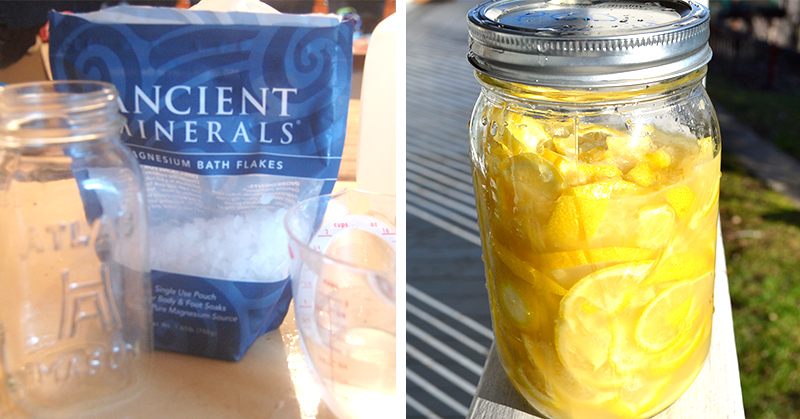Magnesium’s long list of health benefits are nothing short of impressive. However, with the good comes the bad. When your magnesium levels dip too low, the body cannot function properly and becomes at-risk of several illnesses and diseases.
Getting enough magnesium in your diet can be challenging. However, with the help of supplements like the latest trend of magnesium bicarbonate drinks or transdermal magnesium oil, achieving adequate amounts of magnesium is not only attainable, but easy. While magnesium bicarbonate cannot be found naturally in food, you can easily (an affordably) prepare it at home – and we’ve got a recipe for magnesium water to prove it.
Magnesium Benefits and Importance for the Body
Known to reduce muscle tension, lessen pain associated with migraine headaches, improve sleep, and address neurological disorders (to name a few), magnesium is essential to your overall health and well-being. Due to its cellular and molecular function, magnesium impacts nearly all systems of the body. For this reason, magnesium’s effect on the body can be as intense as that of many prescription drugs because of its ability to regulate electrolyte balance, metabolism, and other crucial biochemical reactions.
“Once magnesium falls below a certain level, just about everything goes,” says co-author of The Magnesium Factor, Dr. Andrea Rosanoff. “Up to 50 percent of sudden heart attacks may be due to magnesium deficiency.”
Magnesium Deficiency Symptoms
The implications of magnesium deficiency are frightening and can include:
- Muscle cramps or tremors
- Irregular heart beat
- Fatigue
- Confusion
- Irritability
- High blood pressure
- Asthma
- Bone and teeth degeneration
- Kidney and liver disease
- Hypertension
- Insomnia
The Benefits of Magnesium Bicarbonate
Magnesium bicarbonate is a complex hydrated salt. It’s rarely found as a liquid except in some pristine mountain spring water. Drinking magnesium bicarbonate water increases digestion, nutrient absorption and, overall, boosts energy levels and cell detoxification. The benefits of magnesium bicarbonate include:
- Replenishes calcium, sodium channels in the body
- Protects cells from heavy metals poisoning (e.g., aluminum, mercury, lead)
- Increases memory, focus, and deep relaxation
Magnesium Water Recipe: How to Make Magnesium Bicarbonate

Making magnesium bicarbonate is both easy and affordable. The recipe is based on the reaction of magnesium hydroxide (in milk of magnesia) with plain carbonated water. To prepare the water:
- Chill a 1-liter bottle of unflavored seltzer water, which is fully carbonated.
- The seltzer should only contain water and carbon dioxide (CO2). Club soda is carbonated water with a small amount of added sodium and is also suitable.
- Shake the bottle of Milk of Magnesia well, then measure out 3 tablespoons (45 ml) and have it ready.
- The plastic measuring cup that comes with the MoM is accurate and ideal for the purpose.
- Remove the bottle of unflavored seltzer from the refrigerator without agitating it. Open it slowly and carefully to minimize the loss of CO2 and, once the initial fizzing stops, add the MoM.
- Promptly replace the cap on the water bottle and shake it vigorously for 30 seconds or so, making the liquid cloudy.
- After roughly ½ hour, the liquid will have cleared, and any un-dissolved magnesium hydroxide will have settled to the bottom of the bottle.
- Repeat this process one more time. When the liquid again clears all of the magnesium hydroxide in the MoM should have reacted with all of the CO2 to become dissolved (ionized) magnesium and bicarbonate.
Once completed, your 1-liter of concentrated magnesium bicarbonate water will contain ~1500 mg of magnesium and ~7500 mg of bicarbonate. To make it last, keep it in the refrigerator. You may note that the sides of the bottle “cave in” when the liquid clears. Don’t worry – this is a sign that the reaction is complete. You might also want to add some flavor to the drink using slices of fresh lemon or lime.
An ideal serving size for magnesium is 200 mg a day, which works out to be about 1/2 cup (125 ml) of this recipe. If you wish, you may increase the serving size up to 1 full cup (250 ml). Please note that taking more than 1 cup may end up causing loose stools.



